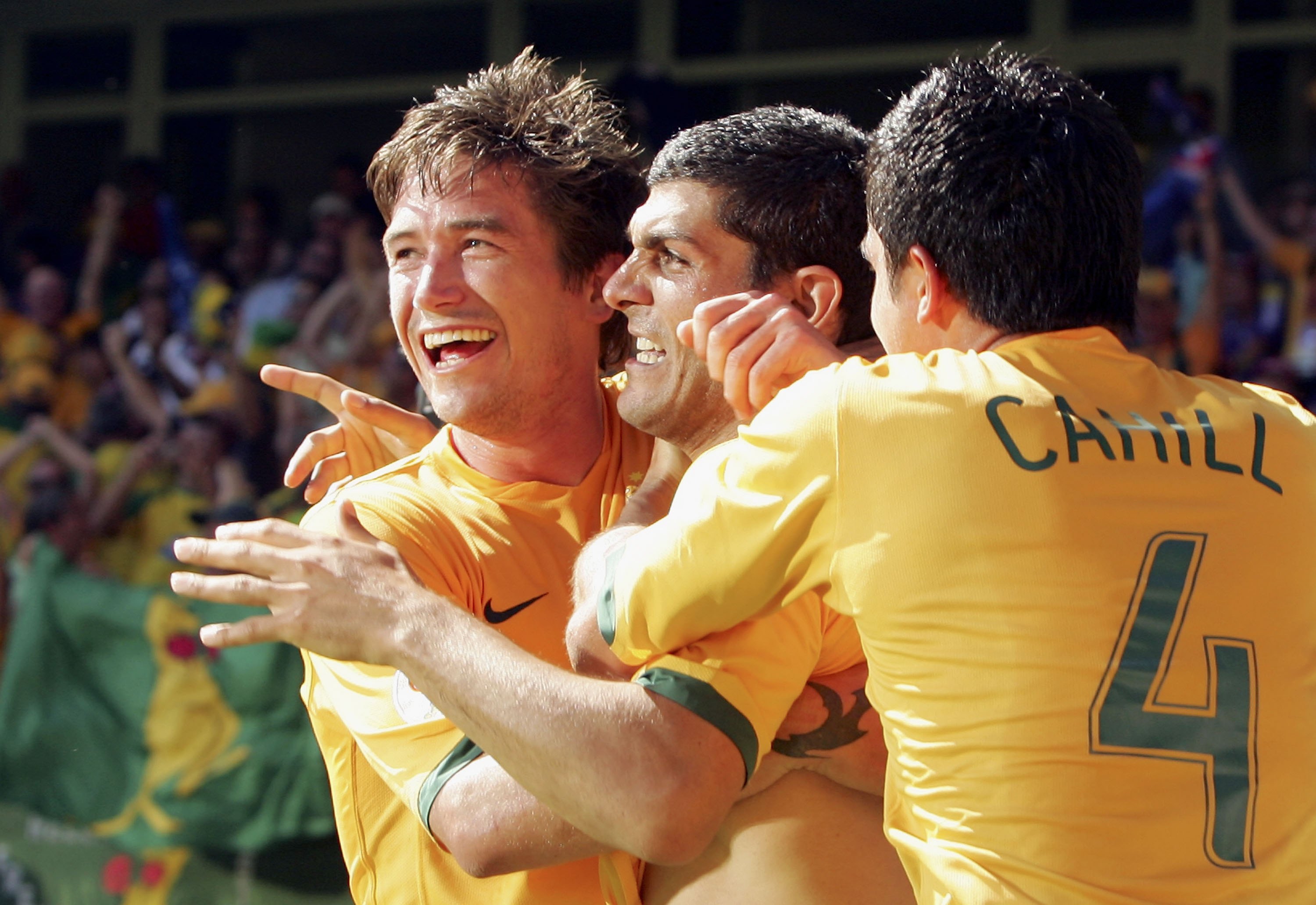With Guus Hiddink due on Australian soil next month to briefly reprise his partnership with former protege Graham Arnold, thoughts inevitably turn to the aptly-titled golden generation which shimmered under the Dutchman’s watch.
For all his wiles and wisdom, Hiddink was fortunate to inherit a squad be-speckled by gems of such lustre his role was to simply add a lick of missing polish.
Names like Kewell, Viduka, Neill, Cahill, Schwarzer, Bresciano and Grella made Hiddink’s team sheet read like a threatening letter at Germany 2006.
Due to their Premier League exploits - predominantly in the white of Leeds United - Kewell and Viduka (Hiddink’s captain at the World Cup) were the magnetic men.

In Kewell’s case - as the emergent fresh prince of Australian football during the doomed France ‘98 qualification campaign - it had seemed forever thus.
It began with a bang back in ‘96 when Kewell began tearing it up down the left for Leeds under George Graham.
Flash forward a year, and he was a study in unsullied, angelic innocence when spotted in the lobby of Melbourne’s Hilton hotel in the aftermath of the Socceroos’ heartbreak playoff exit against Iran at the MCG.
At just 19, the spiky-haired flier had overnight become the most marketable face of the game in his home country, with goals in both legs against the Iranians underlining his special status.

Swashbuckling on the field for both club and country, the winger’s clean cut charisma was marketing manna from heaven - the closest approximation Australia had to England and Manchester United pin-up David Beckham.
Enter Bernie Mandic, the fast-talking, tousle-haired player manager whose deals on Kewell’s behalf made the player a small fortune from an array of eager backers.
Mandic, a one-time barman who also once had Viduka in his stable, was happy to play the pantomime villain during a 12-year high-wire double act which featured a libel suit against Gary Lineker, sparked by Kewell’s acrimonious switch from Leeds to Liverpool in 2003.
He could broker a deal without breaking stride, and that’s where yours truly comes in as the scribe entrusted with ghost-writing Kewell’s newspaper columns for the Sydney Sunday Telegraph back in 2001.
It was an attempt to capitalise on the popularity of the kid from Sydney’s west with a series of exclusive insights into life at Elland Road and beyond.
Well, the best laid plans and all that ….
Shy and suspicious of media intrusions in those formative years, getting Kewell to express himself as forthrightly with his tongue as his feet was a mission of attrition.
John Grisham would have struggled to conjure a plot-line amid the “ums”, “ahs” and awkward silences of our brief phone conversations.
And when a discernible theme was established, avid proof readers Mandic and Kewell’s father Rod, a former dockside worker from London turned western Sydney Bon Vivant, would pick at the carcass of the copy, consigning to the cutting room floor flashes of insight.

Suffice to say, the Kewell Collection didn’t feature in the annals of great literature and News Ltd quietly canned the column after failing to exact their pound of flesh.
Kewell, of course, is now eloquent and articulate when opining on matters football and flourishing anew under Ange Postecoglou’s coaching umbrella at Celtic.
Players deeds on the pitch are of far more importance to fans than the things they annunciate off it.
But, in football as in life, personalities come in multifarious forms.
Whilst Kewell was a reluctant voice way back when, others of that golden group were not as reticent.
Schwarzer, then at Middlesbrough, was already an accomplished and cerebral communicator in a hint at the post-football career he’s carved out as a pundit and TV personality.
Italy-based Grella was happy to dissect matches in frank and revealing post-mortems; Mark Bresciano was content to let his close confidant do most of the talking; Brett Emerton preferred to let his football speak most loudly, Tim Cahill was self-assured and often ebullient; Mark Viduka was eternally mystified by the “media circus” which engulfed him; Craig Moore was down to earth with a mischievous streak, ergo his homie Kevin Muscat; Stan Lazaridis was effusive and rarely elusive; Tony Popovic, then of Crystal Palace, opted to keep his own counsel; Chipperfield was affable yet equally content with his own company; John Aloisi was thoughtful and considered in his utterances whilst Luke Wilkshire a refreshing straight-hitter milking everything from his brief moment in Hiddink’s football finishing school.
And so it was in the golden era of Kewell and the Gang.

